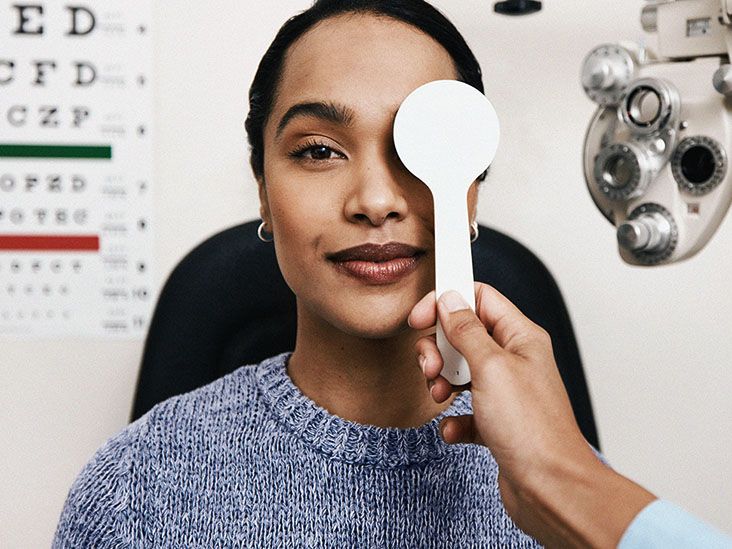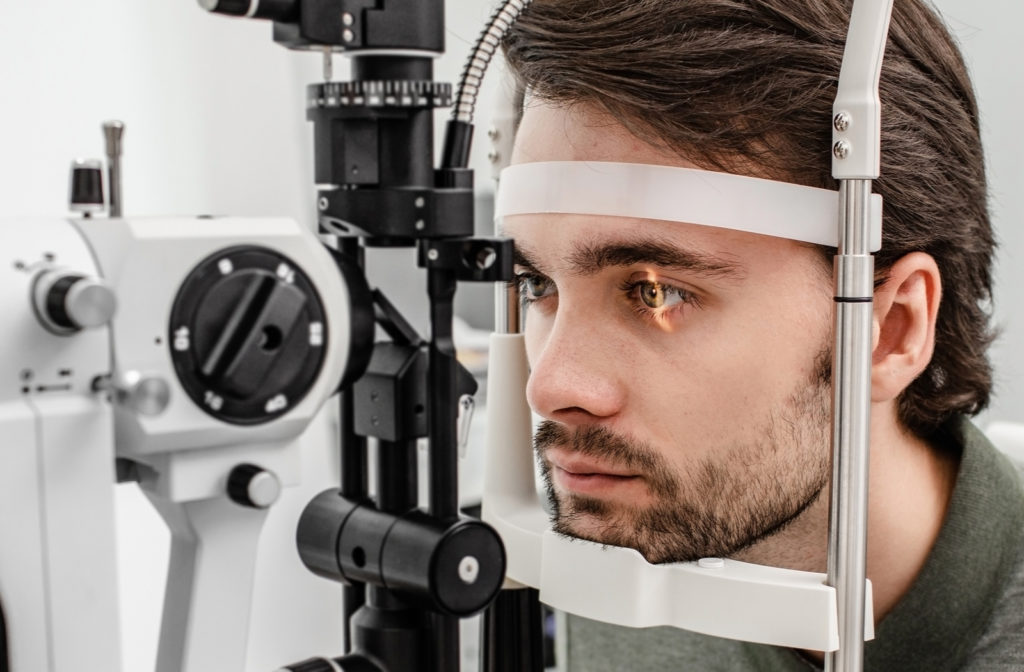Optometrist Montgomery: Top Quality Eye Treatment and Vision Solutions
Optometrist Montgomery: Top Quality Eye Treatment and Vision Solutions
Blog Article
The Value of Normal Eye Tests: Insights From a Knowledgeable Eye Medical Professional
Normal eye tests offer as an essential element of healthcare that prolongs past mere vision adjustment. A knowledgeable ophthalmologist can provide understandings into exactly how these examinations not just detect common eye conditions but likewise reveal underlying health problems that may otherwise go undetected. The quiet progression of diseases such as glaucoma and macular deterioration emphasizes the requirement of early discovery. Comprehending the frequency and significance of these analyses can eventually influence one's lasting health and wellness trajectory, raising the inquiry of exactly how typically individuals need to prioritize their eye health and wellness in the context of overall health.
Advantages of Routine Eye Tests
Although numerous people might neglect the relevance of regular eye tests, these assessments play a vital role in preserving total health and wellness. Normal eye examinations serve not just to assess vision however additionally to detect early indicators of systemic health issues, including diabetes mellitus and hypertension. By identifying these conditions at their beginning, people can receive timely treatments, dramatically improving long-term results.
Furthermore, eye tests can aid in monitoring existing health and wellness problems, making certain that any kind of changes in vision or eye health are quickly attended to (optometrist). The evaluations permit tailored recommendations concerning eyeglasses, way of life modifications, and safety procedures versus prospective eye stress or damage
Beyond physical health and wellness, the benefits of routine eye examinations include boosting top quality of life. Boosted vision promotes far better efficiency in everyday activities, from reading to driving, thereby contributing to better freedom and safety and security. Eventually, prioritizing eye exams fosters an aggressive strategy to wellness administration, equipping individuals to organize their health. Regular check-ups are an important element of a detailed healthcare strategy, making sure that both vision and general health and wellness are protected throughout life.
Common Eye Conditions Detected
Routine eye tests are crucial in identifying a range of typical eye problems that can dramatically impact vision and general health. Among the most common problems recognized during these examinations are refractive errors, including myopia (nearsightedness), hyperopia (farsightedness), and astigmatism. These conditions usually show up as blurred vision and can be quickly remedied with prescription glasses or contact lenses.
An additional common concern is glaucoma, a team of eye diseases that damage the optic nerve, usually linked to boosted intraocular stress. Early detection is essential as it can avoid permanent vision loss.
Age-related macular deterioration (AMD) is one more substantial problem that affects central vision, specifically in individuals over 50. Lastly, diabetic person retinopathy, a difficulty of diabetes, can bring about serious vision disability otherwise kept track of consistently. Via comprehensive eye tests, these conditions can be determined early, enabling timely monitoring and therapy to preserve vision and enhance lifestyle.
Relevance of Early Discovery
Very early discovery of eye problems plays an essential function in protecting vision and avoiding considerable health and wellness difficulties. Many eye conditions, such as glaucoma, diabetic person retinopathy, and age-related macular deterioration, can proceed calmly without visible signs and symptoms in their very early phases. By the time signs and symptoms materialize, irreversible damages may have happened, bring about long-term vision loss.
Routine eye exams assist in early medical diagnosis, enabling prompt treatment and therapy. As an example, treating elevated intraocular stress can prevent the beginning of glaucoma, while taking care of blood sugar levels can substantially reduce the risk of diabetic retinopathy. Additionally, problems like cataracts can be effectively handled with medical treatment when identified early.

Exactly How Usually Should You See?
Figuring out the frequency of eye exams is vital for maintaining ideal eye health and wellness and vision. The general suggestion for adults is to have an extensive eye test every one to 2 years, depending on private risk variables and age.
People with details risk variables, such as a family members history of eye illness, diabetes, or existing vision troubles, might need more frequent assessments. Youngsters ought to have their very first eye examination at 6 months old, followed by added examinations at age three and prior to entering college. Routine check-ups during childhood years are important as vision can change quickly throughout developing years.
Eventually, the regularity of visits must be tailored to every person's conditions, including way of living, occupational threats, and any pre-existing eye conditions. Consulting with an eye treatment professional can offer customized recommendations, making sure that your eye wellness is regularly kept an eye on and maintained.
Tips for Your Eye Test
Preparing for your eye examination can enhance the efficiency check this of the visit and make sure a thorough examination of your eye wellness. To maximize your time with the eye physician, it is crucial to gather pertinent information prior to your visit. Beginning by compiling a listing of any kind of medications you are presently taking, consisting of over-the-counter drugs and supplements, as these can influence eye health.
Furthermore, record any type of signs and symptoms you have experienced, such as blurred vision, discomfort, or headaches. This details will help your ophthalmologist in detecting potential problems. If you put on glasses or contact lenses, bring them along, even if you don't use them frequently. This will certainly assist the doctor analyze any modifications in your vision.
It is additionally beneficial to have a family background of eye problems handy, as great site hereditary aspects can add to your eye health and wellness. Lastly, think about scheduling your exam for a time when you are much less hurried, permitting you to ask concerns and discuss your issues thoroughly. By preparing properly, you ensure that your eye exam is effective which your eye physician has all the required information to give the ideal treatment possible.

Conclusion
Normal eye examinations play a vital role in keeping both vision and general health. They promote the early discovery of different eye conditions and systemic concerns, allowing for prompt intervention. The referrals for regularity highlight the importance of aggressive care. Applying easy primary suggestions can boost the assessment experience. Ultimately, prioritizing comprehensive eye examinations contributes substantially to the preservation of vision and the enhancement of lifestyle, highlighting the need of routine eye treatment in preventative health care approaches.
Regular eye examinations are crucial in spotting a range of typical eye conditions that can considerably affect vision and total wellness.Determining the frequency of eye exams is necessary for keeping optimum eye wellness and vision.Preparing for your eye test can enhance the effectiveness of the go to and guarantee a complete analysis read review of your eye wellness (optometrist). By preparing adequately, you ensure that your eye exam is productive and that your eye doctor has all the necessary information to provide the ideal treatment feasible
Eventually, focusing on detailed eye examinations contributes considerably to the preservation of vision and the improvement of top quality of life, underscoring the requirement of routine eye care in preventive medical care approaches.
Report this page